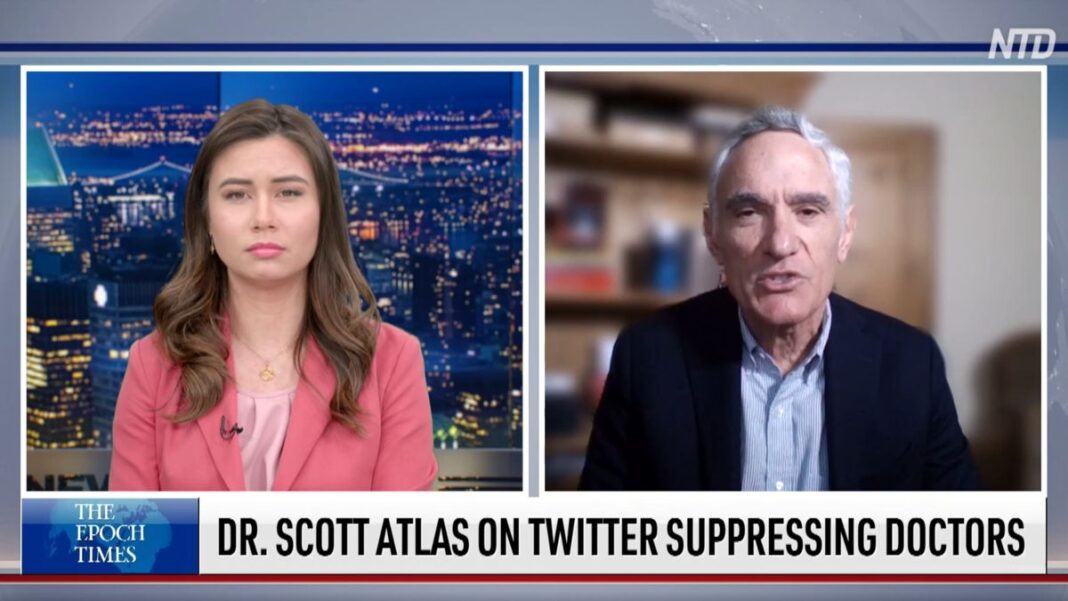Director of National Intelligence Avril Haines revealed the White House’s vast efforts to “debunk” disinformation and “false narratives,” including about the Russia-Ukraine War, while speaking with a leading British intelligence officer, who called on Western intelligence agencies to “prebunk” disinformation and use “alliances” between big tech and the government to make people view government-backed narratives with more “trust.”
The stunning admissions – which follow confirmation that American intelligence agencies have been colluding with social media platforms to censor Americans – came during an interview on BBC Radio 4’s Today program featuring Jeremy Fleming as a guest host.
Fleming, the Director of the Government Communications Headquarters (GCHQ), the United Kingdom’s Intelligence, Cyber and Security Agency, also called on intelligence agencies to take a more active role in countering “disinformation,” proposing that intelligence agencies begin “pre-bunking” allegedly false narratives before they become mainstream.
Fleming also alluded to “alliances” between “big tech” and government being used to mainstream certain narratives in a more effective manner in the interview.
Avril Haines, the U.S. Director of National Intelligence, joined the BBC program to discuss how the White House was influencing the information landscape about the ongoing Russia-Ukraine war under the pretense of minimizing the spread of “disinformation.”
She admits that “we obviously tried to counter disinformation that the Russians were putting out” in the interview.
“We saw that they were looking to create a pretext for the invasion and we wanted to sort of debunk that and help people understand that this was a false narrative,” she explained in reference to Russia and the onset of the war in February 2022.
“We were able to have an impact in a sense on the conversation about this,” she adds. The Russia-sponsored narrative Haines set out to combat was “that the United States is provoking this conflict and that NATO and Ukraine are setting the conditions and threatening Russia and that sort of forced them into this position.”
Haines notes that U.S. intelligence agencies’ impact was “far greater in the West than it was in other places in the world.”
“So we recognize that we were able to have impact in countering disinformation but that there were limits on what we were able to do and that we needed to understand that in order to really understand how we can counter this moving forward,” she concludes.
In response, Fleming calls for intelligence agencies to better deploy the intel they gather from various sources, even calling on agencies to “pre-bunk” certain narratives:
“You’ve put a lot of effort into getting secret intelligence, but I always think it’s no point collecting it unless you use it. The sea change we’ve seen during this conflict of getting the intelligence out there and using it to ‘pre bunk’.”
Fleming also alluded to a fusion between public and private enterprise in efforts to counter “disinformation” and shape narratives about global events such as the Russia-Ukraine war.
“It can’t just be government and intelligence voices out there. There have got to be other voices. One of the critical things from this conflict has been the way the private sector has played a part,” Fleming explains before identifying “big tech” as an integral component.
“It seems to me there are different alliances which enable us to show and demonstrate that we are more trusted because it’s not just a government voice out there,” the British intelligence officer adds.
“Yeah, I absolutely agree with that,” replied Haines.
Fleming’s 7,000-person agency has been highly scrutinized following a whistleblower report from Edward Snowden revealing that it collected all online and telephone data in the United Kingdom. The grand chamber of the European court of human rights ruled that these actions violated privacy rights, was unlawful, and breached the right to freedom of expression.
By Natalie Winters






